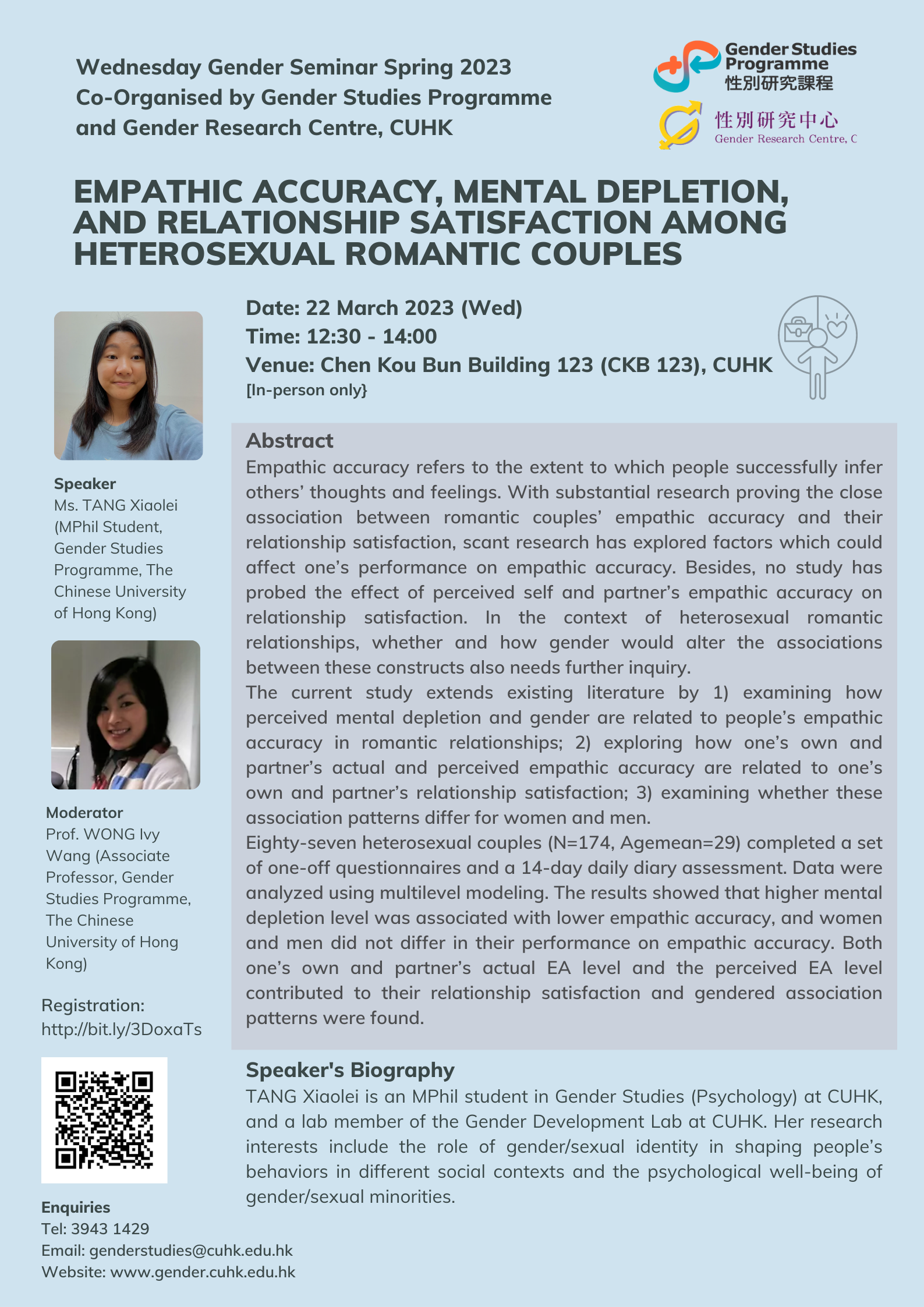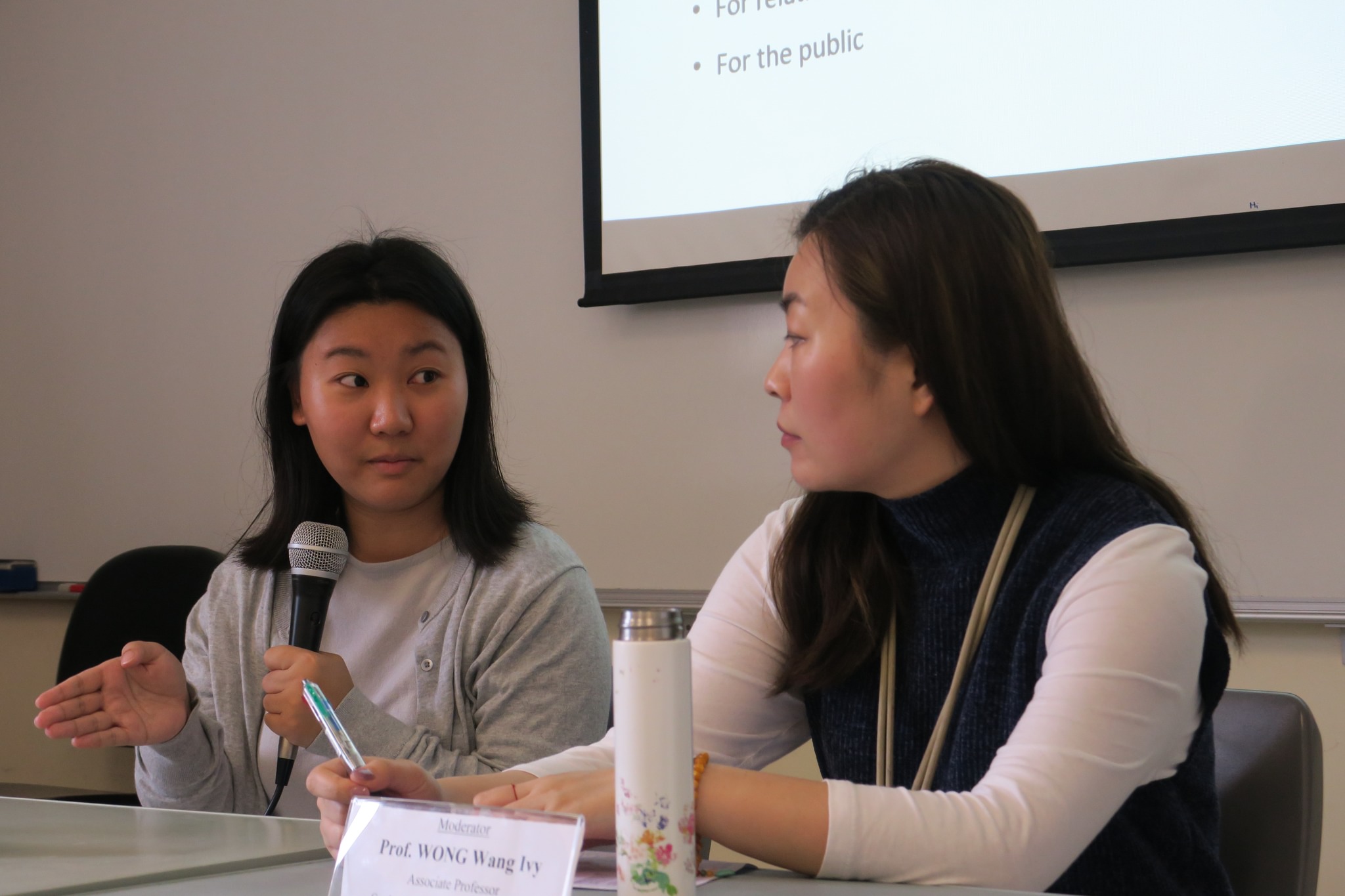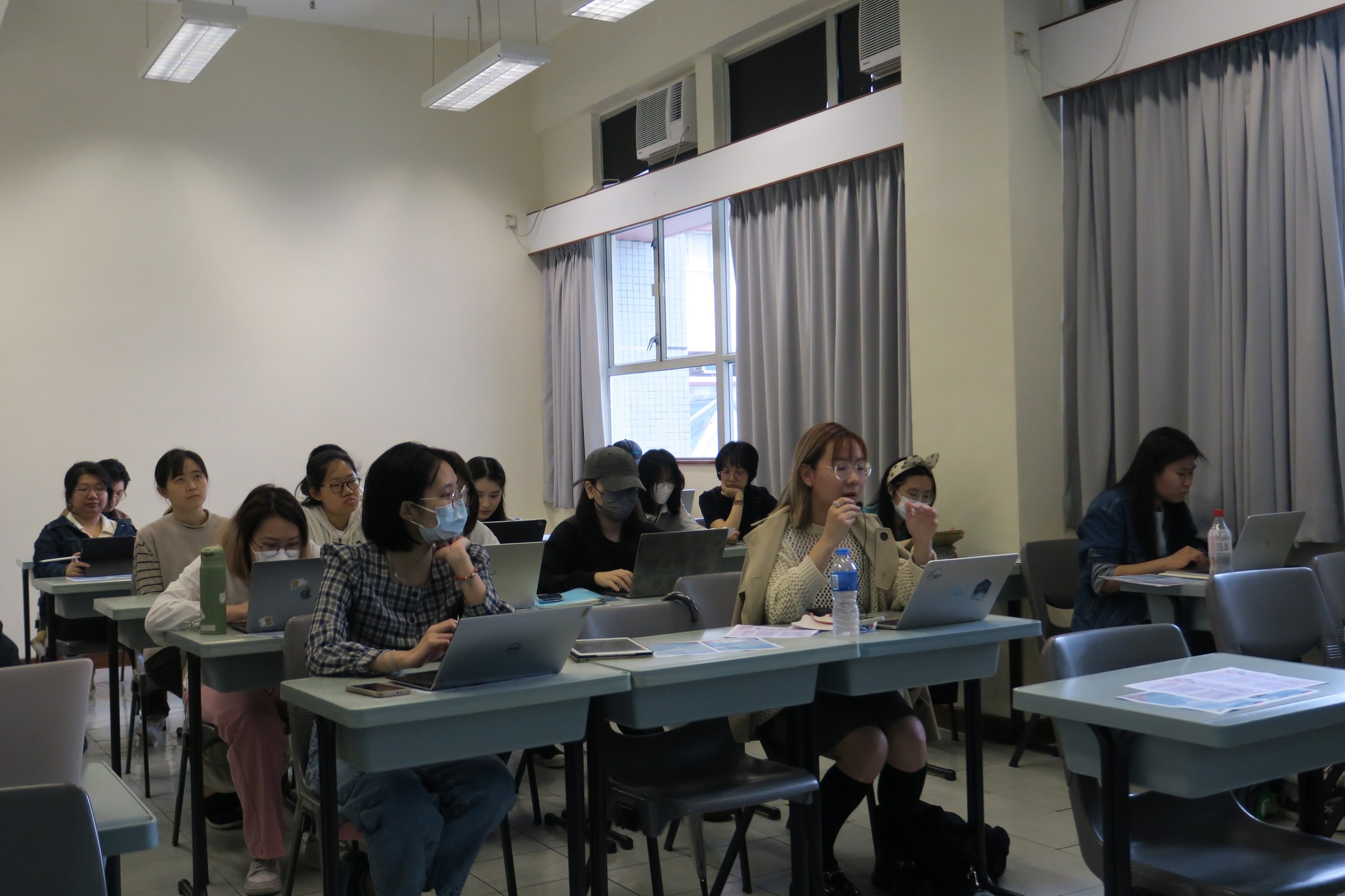In the Wednesday Gender Seminar on March 22, Tang Xiaolei, an MPhil student from CUHK, shared her ongoing psychological research on empathic accuracy (EA), mental depletion, and relationship satisfaction among heterosexual romantic couples.
First, Tang structured her research meaningfully and innovatively by reviewing literature and defining key concepts. While EA is proven positively associated with relationship satisfaction, people neglect factors that could affect EA performance and the effect of perceived EA within romantic relationships. To fill the gap, Tang focused on how two possible factors, perceived mental depletion and gender, could affect one’s performance on EA and explored how actual and perceived EA would be associated with heterosexual relationship satisfaction.
Next, Tang elaborated on her research design and process thoroughly. Instead of using the classic standard stimuli paradigm of EA studies, she applied daily diary assessment to achieve a higher ecological validity and enable cross-lagged analysis in a short time. Eighty-seven heterosexual couples completed a baseline survey independently about empathy quotient and relationship satisfaction. Then, a two-week daily assessment was conducted on mental depletion level, self and partner’s relationship feelings and mood, and EA performance estimation. During data analysis, the hierarchical linear and actor-partner interdependence models were employed for different research questions. The findings revealed an inverse correlation between mental depletion and EA, and there was no significant difference in EA performance regarding gender. Actual and perceived EA levels both contributed to relationship satisfaction. Additionally, outcomes identified gendered association patterns.
Tang also mentioned several limitations and practical implications of her project. Since the study has a cross-sectional design and intensive daily assessment, the researcher could not infer the relationship between the variables. Future scholars should pay attention to longitudinal design to examine the relationships. Besides, the survey did not differentiate perceived EA in emotional valence to avoid participants guessing purposes behind, or investigate an inclusive age range for staying more homogenous for participants. As for practical benefits, the study may raise awareness among relationship health practitioners and the public of the importance of communication and care for mental depletion.
Written by: DU, Ruini
Empathic accuracy refers to the extent to which individuals’ ability to accurately infer others’ thoughts and feelings (Ickes, 2009). Previous findings have shown positive correlations between empathic accuracy and relationship satisfaction (Howland, 2016, Sened et al., 2017). However, individuals’ empathic accuracy may be influenced by various factors, such as their genders (Ickes et al., 2000; Klein & Hedges, 2001) and perceived mental depletion (i.e., subjective perception of mental resources availability; Hiraoka & Nomura, 2016; Meiring et al., 2014). Whether these factors can affect individuals’ empathic accuracy and thus further influence romantic relationship satisfaction remains unclear.
Therefore, the researcher, Xiaolei Tang, conducted a study investigating how perceived mental depletion and gender are related to people’s empathic accuracy in romantic relationships. Specifically, she measured both partners’ actual and perceived empathic accuracy and explored how these different kinds of empathic accuracy relate to their relationship satisfaction. In her study, different from some traditional lab-conducted paradigms, she assessed through daily diaries, which provided high ecological validity.
Eighty-seven heterosexual couples residing in Hong Kong participated in the research, aged 18 to 40 (MAge=29, SDAge=5.18). Among these 174 participants, 97.1% were Chinese, and 97.1% reported being in a committed relationship. Before the daily diary assessment, each participant completed baseline questionnaires assessing their baseline empathy quotient, relationship satisfaction, and demographics independently. Then each of them completed a 14-day daily diary assessment that measured their daily mental depletion, their own and partner’s relationship feelings, their own and partner’s moods, and their empathic accuracy estimations. The daily assessment ended when both partners completed the questionnaires in the same 11 days.
Data were analyzed through Hierarchical Linear Modeling and Actor-Partner Interdependence Model. The results showed that mental depletion level was negatively associated with empathic accuracy in romantic couples, people with a higher level of perceived mental depletion performed lower empathic accuracy. Generally speaking, there was no gender difference in males’ and females’ performance on empathic accuracy. Women’s relationship satisfaction was related to their own and partners’ EA in relationship feelings and their own EA in mood, and men’s relationship satisfaction was related to their partners’ EA in relationship feelings and their own EA in mood. The limitations and implications of the study were also discussed.
Written by: HE, Chuting





A
A
A
Contact Us